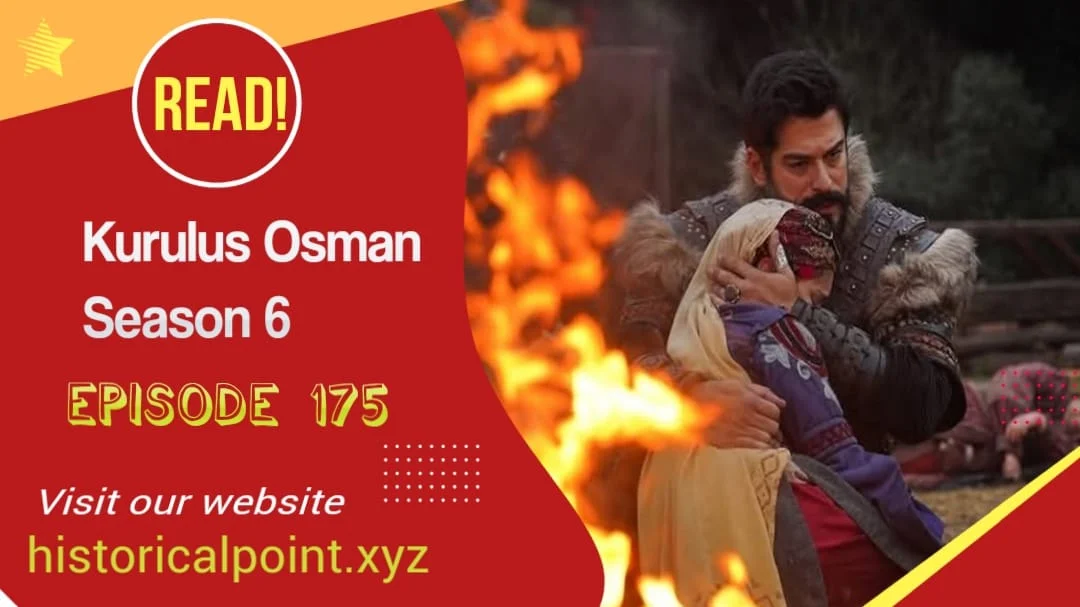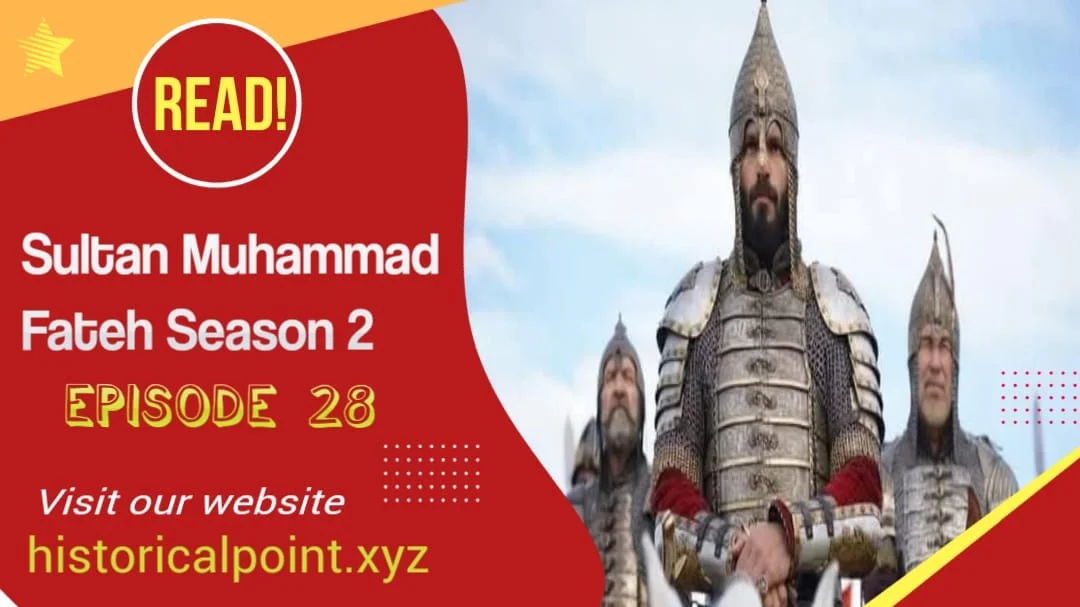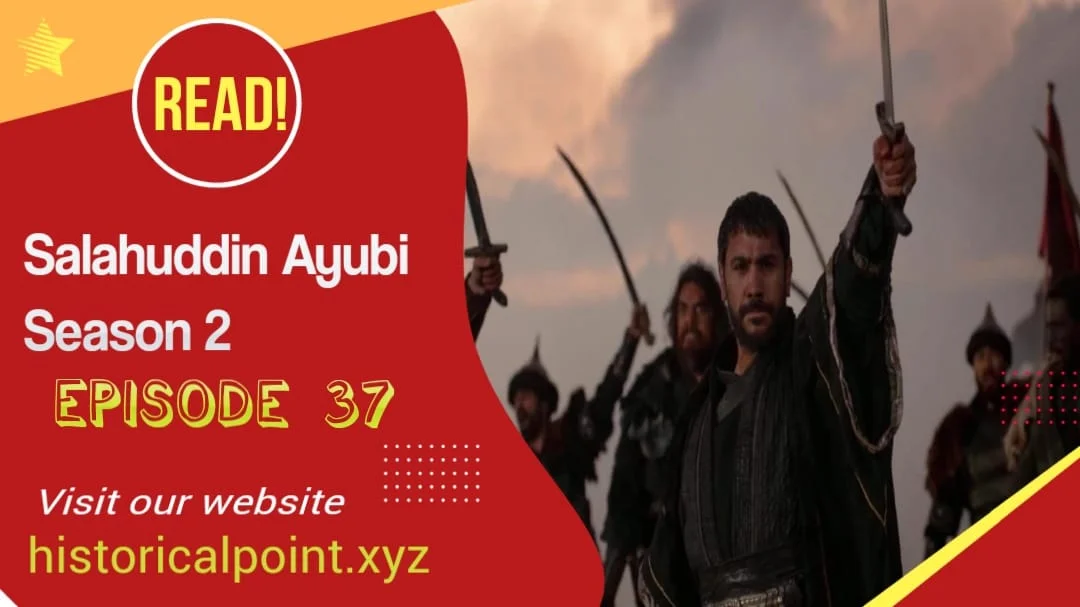Historical Point is a platform where u will get the turkish series and movies review with urdu subtitles. Here we will give you just a fascinating substance, which you will like without question.


Salahuddin Ayubi Season 2:
Salahuddin Ayubi, known as Saladin in the West, was a Muslim military leader who founded the Ayyubid dynasty and played a crucial role during the Crusades. He is best remembered for recapturing Jerusalem from the Crusaders in 1187, following the decisive Battle of Hattin. Renowned for his chivalry, justice, and diplomatic skills, Salahuddin was respected by both his Muslim followers and his Christian adversaries, leaving a legacy as a noble and virtuous leader.
Kurulus Osman Season 6 Review:
The history of Kuruluş Osman, the foundation of the Ottoman Empire, is a captivating tale that intertwines valor, leadership, and ambition. At the heart of this narrative is Osman Bey, the founder of the empire, whose life and legacy have left an indelible mark on history.
Who was Osman?
Osman Ghazi, the founder of the Ottoman Empire, was born in 1258 in the region of Söğüt, near Bursa. He belonged to the Kayi tribe of the Oghuz Turks. As a prominent leader, Osman was instrumental in the establishment of a new empire that would grow to dominate much of Southeast Europe, Western Asia, and parts of North Africa over the centuries. His vision of a unified state and his military prowess led to significant territorial expansions during his reign.
Wars win by Osman Ghazi?
Osman Ghazi, the founder of the Ottoman Empire, is renowned for his military prowess and strategic acumen. One of the most significant war wins attributed to Osman was the Battle of Bapheus in 1302. This decisive victory not only established him as a formidable leader but also marked the beginning of the Ottoman conquests. During this battle, Osman’s smaller forces effectively utilized guerrilla tactics against the larger Byzantine army, leading to a stunning triumph that expanded his territory significantly.
Furthermore, Osman’s military campaigns were characterized by a blend of diplomacy and warfare that allowed him to create alliances and weaken his adversaries. His victories laid the groundwork for the expansion of the Ottoman Empire, as they attracted more followers and warriors to his cause. The legacy of his military success not only enhanced his reputation but also secured the future of his dynasty, setting the tone for the Ottoman ad
Family of Osman Ghazi
The family of Osman Ghazi, the founder of the Ottoman Empire, holds significant importance in both his life and the larger historical narrative of the empire. Osman was born to Ertuğrul Bey, the leader of the Kayı tribe, which laid the foundations for the burgeoning state that would grow into a vast empire. His mother, Hayme Ana, played a crucial role in his upbringing, instilling in him the values of leadership and bravery that would characterize his reign.
Osman Ghazi’s marriage to Bala Hatun, who was the daughter of a prominent Turkish noble, further solidified his status and expanded his relationships with other influential families. Together, they had several children, including Orhan Ghazi, who succeeded Osman and continued to expand the territories of the Osmanlı state. The lineage of Osman Ghazi is not only central to the history of the Ottomans but also highlights the significance of strategic marriages
Death of Osman ghazi
The death of Osman Ghazi, the founder of the Ottoman Empire, is a significant event in history that marks the end of an era and the beginning of a new one. Osman Ghazi passed away in 1326, having ruled for over 26 years. His passing took place in the region known as Bithynia, where he had worked diligently to expand his territory and establish a strong state. The exact cause of his death remains unclear, but it is widely believed that it may have been due to natural causes or complications from injuries sustained in battle.
Following Osman’s death, his son Orhan Ghazi succeeded him, continuing the vision and expansion that his father had laid the groundwork for. Osman Ghazi’s legacy is evident in the strength of the Ottoman state, which would flourish and expand under his son’s leadership.
Sultan Muhmmad Fateh Season 2 Review:
Sultan Muhammad Fateh, also known as Mehmed the Conqueror, was the Ottoman Sultan who conquered Constantinople in 1453, marking the end of the Byzantine Empire. This monumental victory established the Ottoman Empire as a dominant power in both Europe and Asia. Mehmed II was a visionary ruler, renowned for his military strategies, administrative reforms, and efforts to transform Constantinople into the thriving city of Istanbul.













